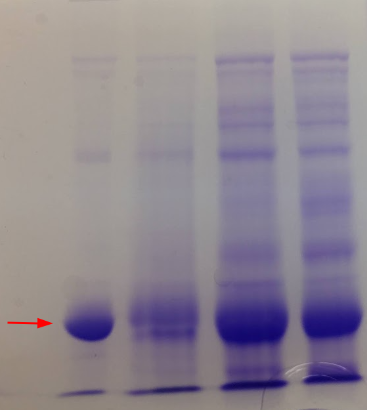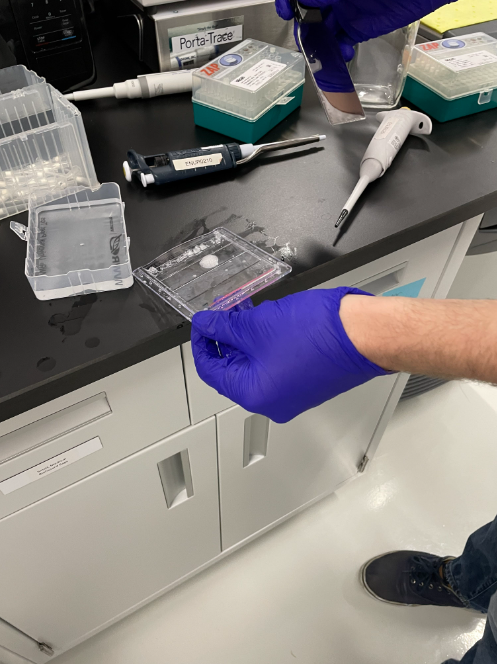Can I add successful protein expression to the “Life’s Best Feelings” list? Like jumping into a line right as the restaurant door closes and is locked. Like cleaning a dirty deck with a pressure washer. Like being on a lake early morning that’s smooth as glass.
These are some of life’s good feelings.
Protein expression, too.

Getting to expression can be challenging. GrindBio wants to help researchers get here quicker. If the protein can be expressed, we want to provide the optimal conditions to do it. If the protein can’t be expressed after exploring popular, routine conditions, then we want researchers to know that, too, so they can move on.
Looking back on the proteins I expressed in graduate school, I recognize that I had too many darling proteins—or proteins I really wanted to express in E. coli. I always held out hope that another vector, another E. coli strain, or a brochure or fusion tag from a paper would help tip the conditions from not-expressing to expressing. I wanted to feel one of life's best feelings, andI held out hope too long. Now, looking back, I wish someone had just said, “This can’t be expressed in E. coli. Why don’t you try yeast?” There’s as much value in being told ‘no’ as much as there is ‘yes—here are the optimal conditions.”
GrindBio explores expression space. We test a variety of conditions—fusion partners, E. coli strains, and induction protocols. But if after exhausting the most common, routine conditions your protein still won’t express, we believe in giving you the straight answer: it might be time to move on.
This isn’t a message everyone wants to hear, especially after investing significant time, resources, and emotional energy into a particular project. But it’s a message that could save you even more time, more resources, and perhaps most importantly, the frustration of continuing to shake your shaker needlessly.

The moment you realize a protein won’t express in E. coli might feel like a setback, but it can also be a powerful pivot point. There are other systems—like Pichia pastoris or mammalian cell lines—that might be better suited for your protein. Shifting your focus to one of these systems could mean the difference between success and continued struggle.
I think back to my own experience and the stubborn hope I had for expressing certain proteins in E. coli. I was so focused on making it work that I lost sight of the bigger picture: finding the best way to express the protein, not just the most convenient or cheapest. If someone had given me a definitive “no” earlier on, I would have been free to explore other avenues that might have led to success faster.
So, are you willing to pay for an answer you don’t like? At GrindBio, we believe that sometimes the most valuable thing we can offer isn’t a breakthrough, but a hard truth. Knowing when to move on can be just as valuable as knowing what works.
Our goal is to help you navigate the complex landscape of protein expression with clarity and confidence. If the path forward is blocked, we’ll let you know. And if there’s a way through, we’ll do everything in our power to find it.
In the end, the answer you don’t want might be the one that saves your research. And that, we believe, is worth every alpha fold and beta helix.
Harley